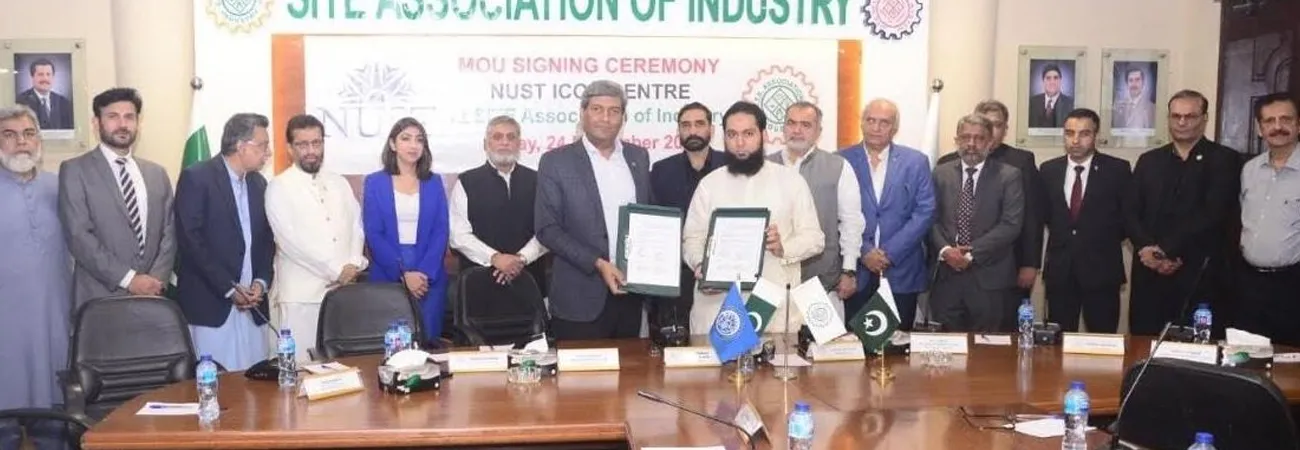i ECONOMY
The National University of Science and Technology has set up an industrial innovation office – NUST Icon Centre – in Sindh Industrial Trading Estate, commonly known as SITE area, of Karachi to help promote industry-academia linkage for fast-paced industrial growth. This centre came about after NUST and SITE Association of Industry (SAI) signed a Memorandum of Understanding. The centre is first of its kind in the mega city. SAI President Muhammad Kamran Arbi and NUST Pro-Rector of Research, Innovation and Commercialisation Dr Rizwan Riaz signed the MoU. Talking about the Icon Centre, Kamran Arbi said that the centre was set up on the premises of the association. He said it would help promote collaboration between industry and academia for job creation and fast-paced industry development. He added that the centre would help industries promote technical advancement in their operations. “Innovation and modernisation of production processes could take Pakistan’s exports to $100 billion from the existing level in a few years,” said Arbi. He said Pakistan still depended on home remittances for balance of payments and meeting foreign exchange needs.
“Our exportable products are uncompetitive in the international market because of the high costs of manufacturing. Therefore, promoting industry-academia linages would help create economies of scale,” he said. He said over the years, industry-academia collaboration had enhanced knowledge, innovation and played an integral part in the economic growth of developed countries. “The linkage between academia and industry has a strategic role in developing critical skills required by industry (both production and services sector), generation, acquisition and adoption of knowledge, and in promoting entrepreneurship (startups and spin-offs). Similarly, expansion of market-driven research and innovation at university level can be utilised at industrial level to foster commercialisation,” the SAI president explained. The SAI chief said that in developed countries, these linkages were mutually beneficial for industry and academia. “The interaction between industry and academia has been a key factor for economic growth in the developed world.
The focus of academia has to be on the current needs and market trends. Unless industry and academia are on the same page, there will always be a mismatch between the skills and knowledge required in the industry and the graduates produced by universities.” Arbi said there was a tremendous gap between the knowledge produced and knowledge required by the industry in Pakistan. “Pakistani firms not only need to compete at the local level but also at the global level. This is not possible without a strategic alliance of universities and industry. However, there are significant challenges that need to be addressed,” he underscored. He said universities should design their curricula with input from industries so that their graduates can land right jobs in the market. “Research-based education requires support of industry to channelise research activities with respect to local needs and to take advantage of technological advancement.”
Credit: Independent News Pakistan (INP)









